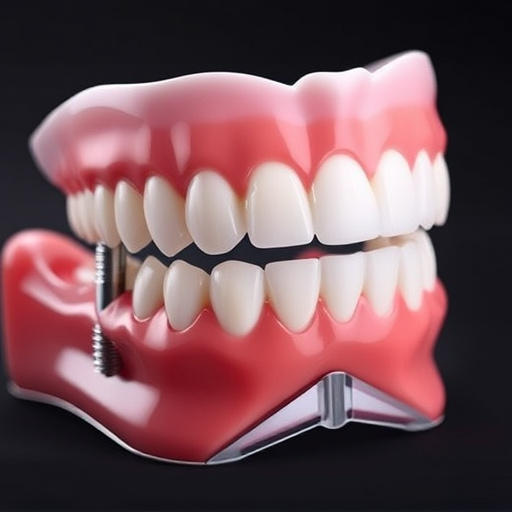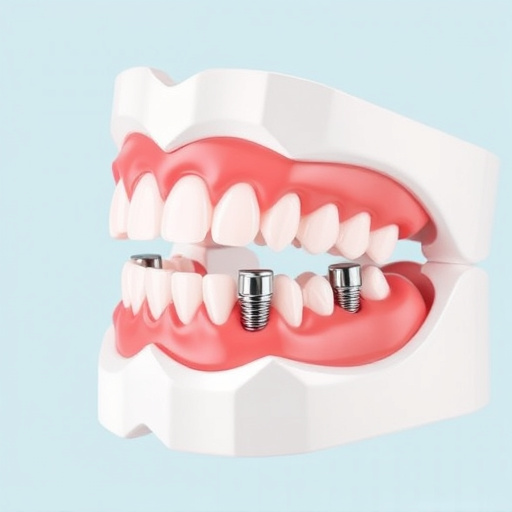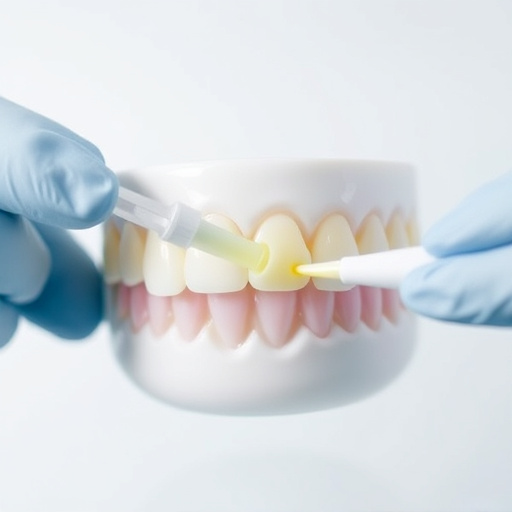Special needs dentistry caters to individuals with disabilities, offering tailored oral care from routine to complex treatments in an inclusive environment. Dentists use soothing techniques, visual aids and modified equipment to build trust and collaboration, addressing unique health concerns through comprehensive solutions like cosmetic dentistry and preventive care. Effective communication, education and familiar routines foster a supportive atmosphere for optimal oral health among patients with physical, cognitive or emotional disabilities.
Building trust is paramount in healthcare, especially within the niche realm of special needs dentistry. This specialized field caters to individuals with diverse physical, mental, and developmental disabilities, demanding unique approaches to ensure patient comfort and satisfaction. Understanding the intricacies of special needs dentistry fosters effective communication and tailored care, ultimately strengthening trust between patients, caregivers, and dental professionals.
This guide explores strategies for cultivating trust within this essential healthcare niche.
- Understanding Special Needs Dentistry: A Comprehensive Guide
- The Impact of Specialized Care on Patient Trust
- Strategies for Building Trust in Dental Settings for Individuals with Special Needs
Understanding Special Needs Dentistry: A Comprehensive Guide

Special needs dentistry is a specialized field that focuses on providing dental care to individuals with various disabilities and unique oral health requirements. It goes beyond the conventional practice of family dentistry, offering tailored services to address the specific challenges faced by those in need. This includes managing conditions like autism, Down syndrome, cerebral palsy, and other developmental or physical disabilities that can impact oral hygiene, gum health, and overall dental functionality.
The scope of special needs dentistry is vast, encompassing a range of procedures from routine check-ups and cleanings to complex treatments such as wisdom tooth removal, orthodontic care, and managing oral pain. Dentists in this field are trained to create a comfortable and inclusive environment for patients, often adapting their practices to suit individual needs. This may involve using soothing techniques, visual aids, or modifying dental equipment to ensure a less intimidating experience for the patient, fostering trust and collaboration in their dental care journey.
The Impact of Specialized Care on Patient Trust

When individuals have special needs, whether physical, cognitive, or emotional, receiving dental care can be a challenging and often intimidating experience. Specialized special needs dentistry plays a pivotal role in building trust between patients and healthcare providers. By offering tailored services, these dentists create a safe and comfortable environment, addressing not just the patient’s oral health concerns but also their unique requirements.
This personalized approach fosters a sense of security and confidence, encouraging open communication. Patients with special needs often have specific fears or anxieties related to dental procedures, and experienced specialists in this field can navigate these challenges effectively. By providing gentle care, explaining each step thoroughly, and offering various comfort measures, dentists can enhance patient trust, making them feel valued and understood. Moreover, integrating services like cosmetic dentistry, dental implants, and preventive dentistry into their specialized practice demonstrates a comprehensive understanding of patients’ diverse needs, further strengthening the trust between doctor and patient.
Strategies for Building Trust in Dental Settings for Individuals with Special Needs

Building trust is an essential aspect of providing quality dental care to individuals with special needs. In this setting, establishing rapport and ensuring comfort can significantly impact their overall experience. Dentists should employ various strategies tailored to each patient’s unique circumstances. For instance, creating a friendly environment, using visual aids, and incorporating familiar routines can help alleviate anxiety. Simple measures like allowing extra time for appointments, providing clear explanations, and offering choices during procedures can empower patients and foster trust.
Special needs dentistry goes beyond basic treatments; it involves creating a safe space. Regular communication between the dentist, parents or caregivers, and the patient is key. Educating all parties about the importance of routine oral exams, dental cleanings, and even cosmetic fillings (if age-appropriate) can build understanding and cooperation. This collaborative approach ensures that everyone involved is committed to maintaining optimal oral health, ultimately strengthening the trust between dentist and patient.
Special needs dentistry plays a pivotal role in fostering trust and improving oral health outcomes for individuals with diverse requirements. By implementing tailored strategies, dental professionals can create an inclusive environment, enhancing patient trust through specialized care. This approach not only addresses the unique challenges these patients face but also promotes a sense of comfort and security, ensuring long-term adherence to dental hygiene practices. Embracing these strategies is essential in building a supportive framework that prioritizes the overall well-being of individuals with special needs within the dental setting.














